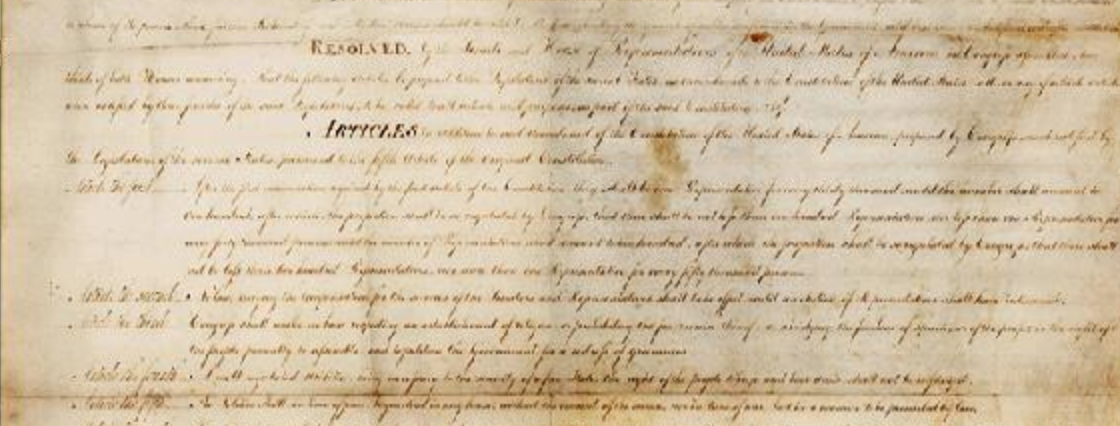We may earn revenue from the products available on this page and participate in affiliate programs. Learn More ›
TOP STORY
National Reciprocity, Hearing Protection Bills Churning Through Congress
As expected, U.S. Sen. John Cornyn (R-Texas) introduced a Senate companion to the House’s HR 38, The Concealed Carry Reciprocity Act of 2017, on Feb. 27, that would require states to recognize gun permits from law-abiding citizens in other states.
Cornyn’s S.446, The Constitutional Concealed Carry Reciprocity Act of 2017, has 35 co-sponsors and was referred to the Senate Judiciary Committee. All the bill’s co-sponsors are Republicans. It would need at least eight Democrats for it to pass.
Cornyn’s bill is a companion to Rep. Richard Hudson’s (R-NC) HR 38, which has 159 co-sponsors in the House. Introduced in January, it was referred to the House Subcommittee on Crime, Terrorism, Homeland Security, and Investigations on Jan. 12, where it remains.
Also expected to come before the House soon is HR 367, The Duncan-Carter Hearing Protection Act, which was introduced Jan. 9 and referred to the House Judiciary Committee and the House Ways and Means Committee. The bill, introduced by Reps. Jeff Duncan (R-SC) and John Carter (R-Texas) and 116 cosponsors.
The Duncan-Carter Hearing Protection Act of 2017 would amend the Internal Revenue Code to eliminate the $200 transfer tax on firearm silencers and treat any person who acquires or possesses a firearm silencer as meeting any registration or licensing requirements of the National Firearms Act (NFA) with respect to such silencer. Any person who pays a transfer tax on a silencer after Oct. 22, 2015, could also receive a refund of such tax.
And speaking about the National Firearms Act of 1934, while you’re waiting for updates about Congressional proposals to peel back gun-control regulations, feel free to sign a petition on WhiteHouse.gov to repeal the NFA.
The petition reads: “We the People wish to see the National Firearms Act of 1934 repealed in order to remove regulations on our 2nd amendment rights, increase national economic strength, and provide protection against threats to our national security.”
When it was created by “A.Z.” on Jan. 20, the stated goal was 100,000 signatures. As of March 3, it had nearly 260,000 signatures. Since the petition has eclipsed the 100,000 signature threshold, the White House must give “an official response” within 60 days.
For more, go to:
— Congress Member Opposes Bill That Would Make it Easier to Get Gun Silencer
— Sign WhiteHouse.gov Petition to Repeal NFA!
— U.S. House Acts Swiftly To Reverse Gun Control Rules
— Spotlight Falls on Red-State Democrats as a New Gun Fight Brews in Congress
— House Dems warn of ‘terribly alarming’ Republican gun bills
SNAPFU
Snapchat Uses NRA to Scare-Up Advertising — ‘Salacious’ Or Thoughtful?
Snapchat, the 2012 start-up image messaging and multimedia mobile app that allows users to share short-lived and self-deleting images may be wishing its emailed advertising pitches were short-lived and self-deleting following recent disclosures that it asked the PETA to buy ad space for an anti-fur event its news service was covering before the National Trappers Association did.
No, wait. Wrong adversaries, but same tactic.
According to mic.com, in early 2016 Snapchat offered former New York City Mayor Michael Bloomberg’s anti-gun front group Everytown for Gun Safety a free promotion for its June 2 #WearOrange event on National Gun Violence Awareness Day, then pitched them on buying $150,000 in advertising, special filters and lenses before the National Rifle Association did.
Mic.com reports that Rob Saliterman, Snapchat’s head of political sales, emailed Everytown repeatedly in early 2016 in attempts to get the Bloombergians to buy the ad after the start-up’s “news” team had told Everytown that it would cover the event for free.
“I just learned our News Team is doing a Live Story on National Gun Violence Awareness Day,” Saliterman said in one email, according to mic.com. “I would urgently like to speak with you about advertising opportunities within the story, as there will be three ad slots.”
When Saliterman didn’t get the response he expected from the well-financed Everytown, he pulled out the “big gun,” threatening the gun control group that the NRA wants to buy ad space against their event and if they didn’t fork over the $150,000.
“We are also talking to the NRA about running ads within the story,” he said.
In the end, Everytown opted not to purchase the ad or to partner with Snapchat’s “news team” for its #Wearorange event. Nevertheless, mic.com’s disclosures regarding Snapchat’s bedside manner in soliciting advertising has induced ridicule.
But as Bearingarms.com’ Jenn Jacques noted on March 2, the criticism may be unfair.
Basically, Snapchat’s editorial division offered to feature the event for free, and when advertising services learned of this, they immediately reached out to Everytown to offer them the opportunity to ensure NRA ads wouldn’t run during their event.
“So Saliterman, who was trying to ensure Everytown (his potential client) wouldn’t be angered at a potential NRA ad running on their event, is now being made out to be a greedy villain for… doing his job?” Jacques writes. “Once again, a salacious story about the NRA is truly much ado about nothing.”
For more, go to:
— Snapchat Tried to Troll Gun Control Group into Ad Buy
— Snapchat accused of squeezing a gun safety group for money
— News Site Breaks Fake News Story About NRA, SnapChat
— Snapchat wanted $150,000 to NOT run NRA ads on gun control group videos
STATE ROUNDUP
Iowa Bill Extending ‘Castle Doctrine’ To Public Places Advances
A proposed bill to enhance Iowa’s ’Stand Your Ground’ bill on March 1 passed through the House Judiciary Committee in a 13-7 vote and will soon go before the full House for debate.
The proposed legislation would expand the “castle doctrine” — English common law that states person can defend his life with lethal force if necessary when an intruder enters his home or property — to public places.
Currently, Iowa law says people must exhaust other ways of achieving safety if they feel their life is at risk when in public. Under the Republican-supported changes in the current law, people would not have to exhaust lesser means before using deadly force if they feel their life is at risk.
Meanwhile, in Florida, lawmakers want to change their state’s existing “stand your ground” law so that prosecutors must prove a defendant wasn’t acting in self-defense before a case can proceed to trial, a measure being decried by law-enforcement and gun-control critics.
The change to the Sunshine State’s 2005 law would shift the burden of proof from defendants to prosecutors during the pretrial phase of court proceedings in cases in which the defendant has invoked self-defense.
Florida was the first state to pass a “stand your ground” law, in 2005, with strong support from the National Rifle Association. According to the American Civil Liberties Union, 23 other states have such laws.
For more, go to:
— “Stand your ground” everywhere: Republicans seek to expand gun immunity laws across the country
— Cayuga County state legislators want SAFE Act provisions repealed for upstate NY
— Bill would allow concealed carry guns on UNC, community college campuses
— Iowa: Pro-Gun Bill Passes Committee
— South Dakota constitutional carry bill approved in Senate committee
— Tribune Editorial: Bad Utah gun bill caught in crossfire
— Missouri Legislature didn’t protect the police when it passed gun bill
— Alabama gun bill advances to Senate; Sheriff voices opposition
— Wyoming Gun Bill Headed To Governor Mead’s Desk
— Vermont Gun bill would allow confiscation without due process
— New Connecticut bill could change state’s open carry gun law
— Minnesota Democrat Pushes $200K in Annual Taxpayer Gifts for Gun Control Groups
— CeaseFirePA joins gun control activists to call for stricter regulation
— Florida legislative session to be loaded with gun bills
— Arizona bill would end background checks at gun shows
IN THE COURTS
Doe Publius Exposure Upheld: ‘Sic Semper Tyrannis’
A federal judge in California ruled on Feb. 27 that a “tyrant registry” of all pro-gun control California legislators—including their home addresses and phone numbers—is protected as free speech.
U.S. District Court Judge Lawrence J. O’Neill of the Eastern District of California defined the list as “a form of political protest” and, therefore, Constitutional.
The “tyrant registry” was published in July 2016 by an anonymous blogger known as Doe Publius in a blog called The Real Write Winger.
“Isn’t that dangerous?” Publius wrote on his blog when he posted the list. “What if something bad happens to them by making that information public?”
If so, too bad, Publius concluded. “These tyrants are no longer going to be insulated from us. These are the people who voted to send you to prison if you exercise your rights and liberties.”
Publius wrote the list would only be removed upon repeal of gun legislation or “upon the tyrant’s death.”
Within days, the “tyrant registry” went viral and allegedly led to various threats upon several of the named legislators. The California legislative counsel ordered WordPress, The Real Write Winger’s host site, to take down the post. WordPress complied with the demand, which then led to Publius filing suit.
“The legislators’ home address and telephone number touch on matters of public concern,” O’Neill wrote in his opinion. “There is no dispute that Plaintiffs lawfully obtained and truthfully published information that was readily available online. When lawfully obtained, the truthful publication of that information falls within the First Amendment’s ambit.”
For more, go to:
— Judge Rules In Favor Of Gun Control ‘Tyrant Registry’
— Fresno judge says gun groups can put state lawmakers’ home addresses on the internet







